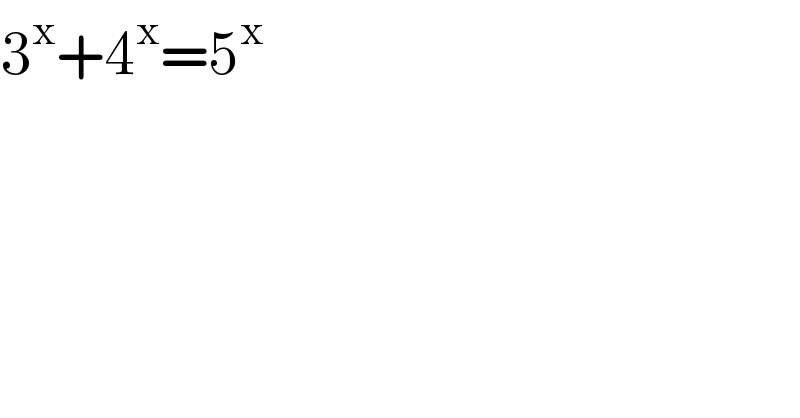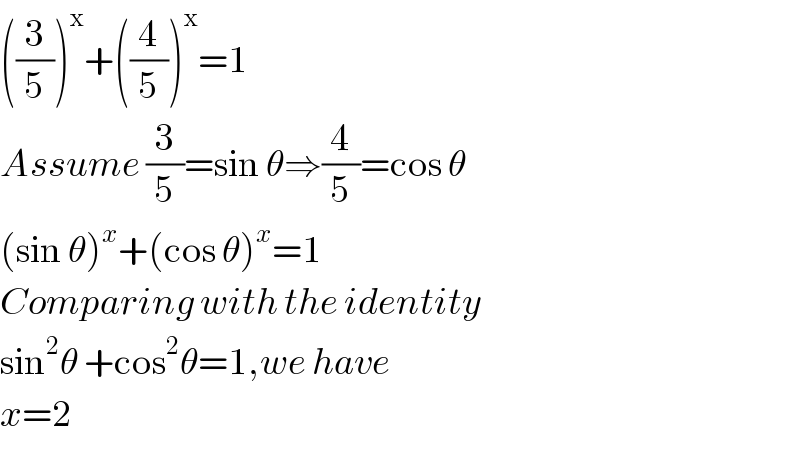
Question and Answers Forum
Question Number 72190 by oyemi kemewari last updated on 26/Oct/19

Commented by oyemi kemewari last updated on 26/Oct/19
find x
Commented by Joel578 last updated on 26/Oct/19

Answered by mind is power last updated on 27/Oct/19

Commented by Rasheed.Sindhi last updated on 27/Oct/19

